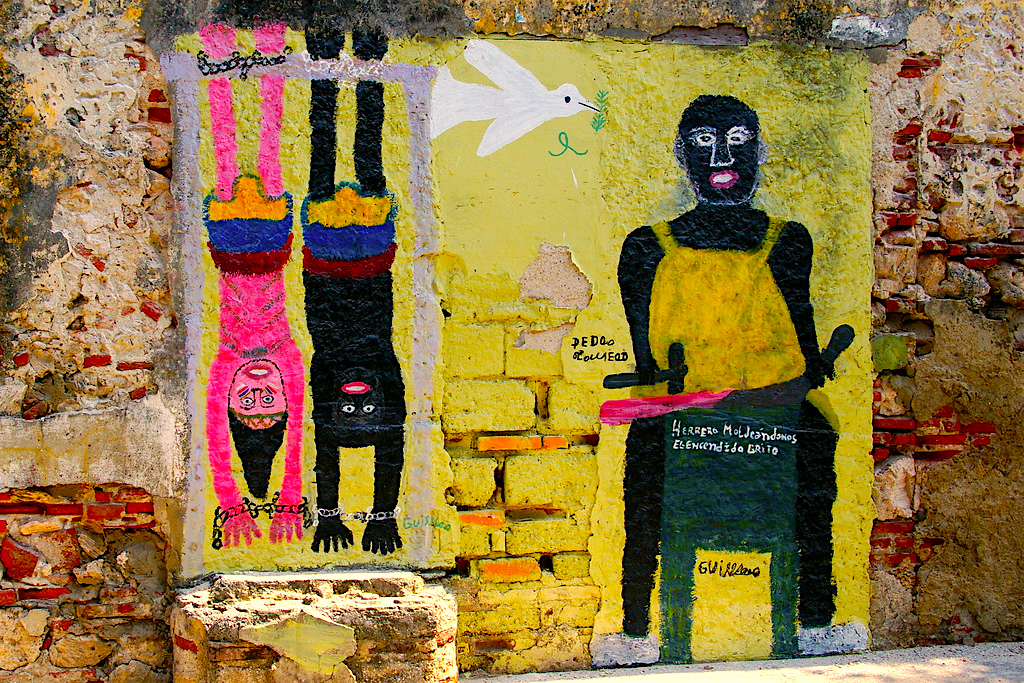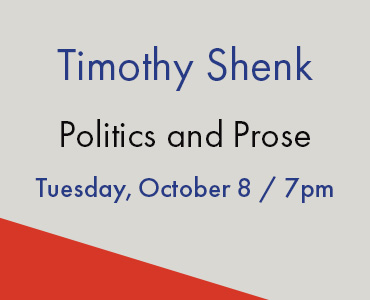Around the World, Elections are Being Upended by COVID-19
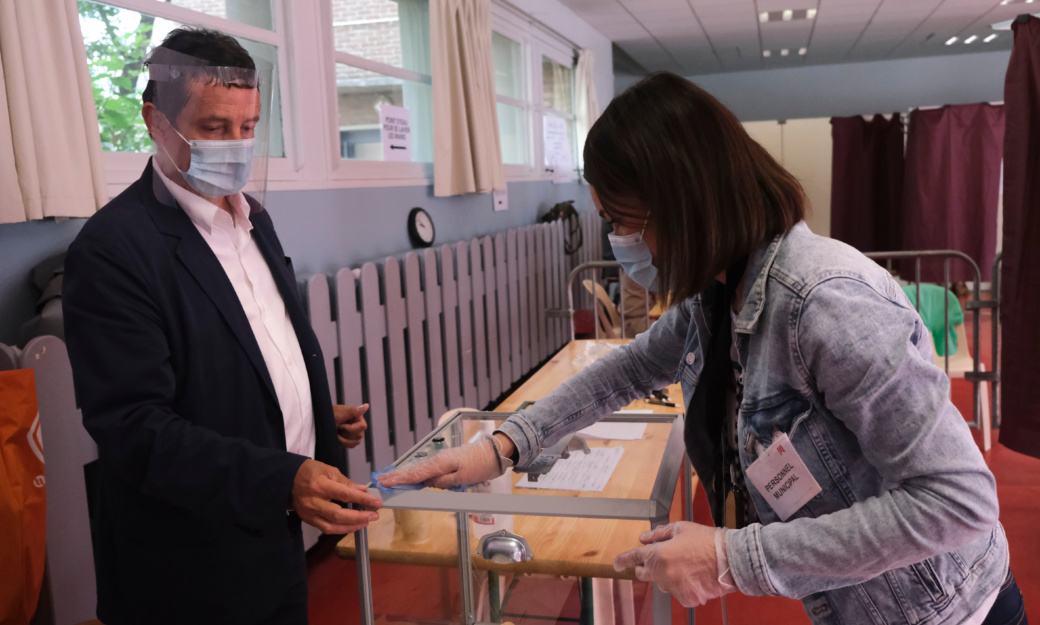
On April 11, Geumsun Oh put on a face mask and plastic gloves, and left her home for the first time in two months. The 92-year-old Seoul resident had reason to be cautious. She was diabetic, suffered from high blood pressure, and, at that point, the coronavirus had already claimed 211 lives in South Korea.
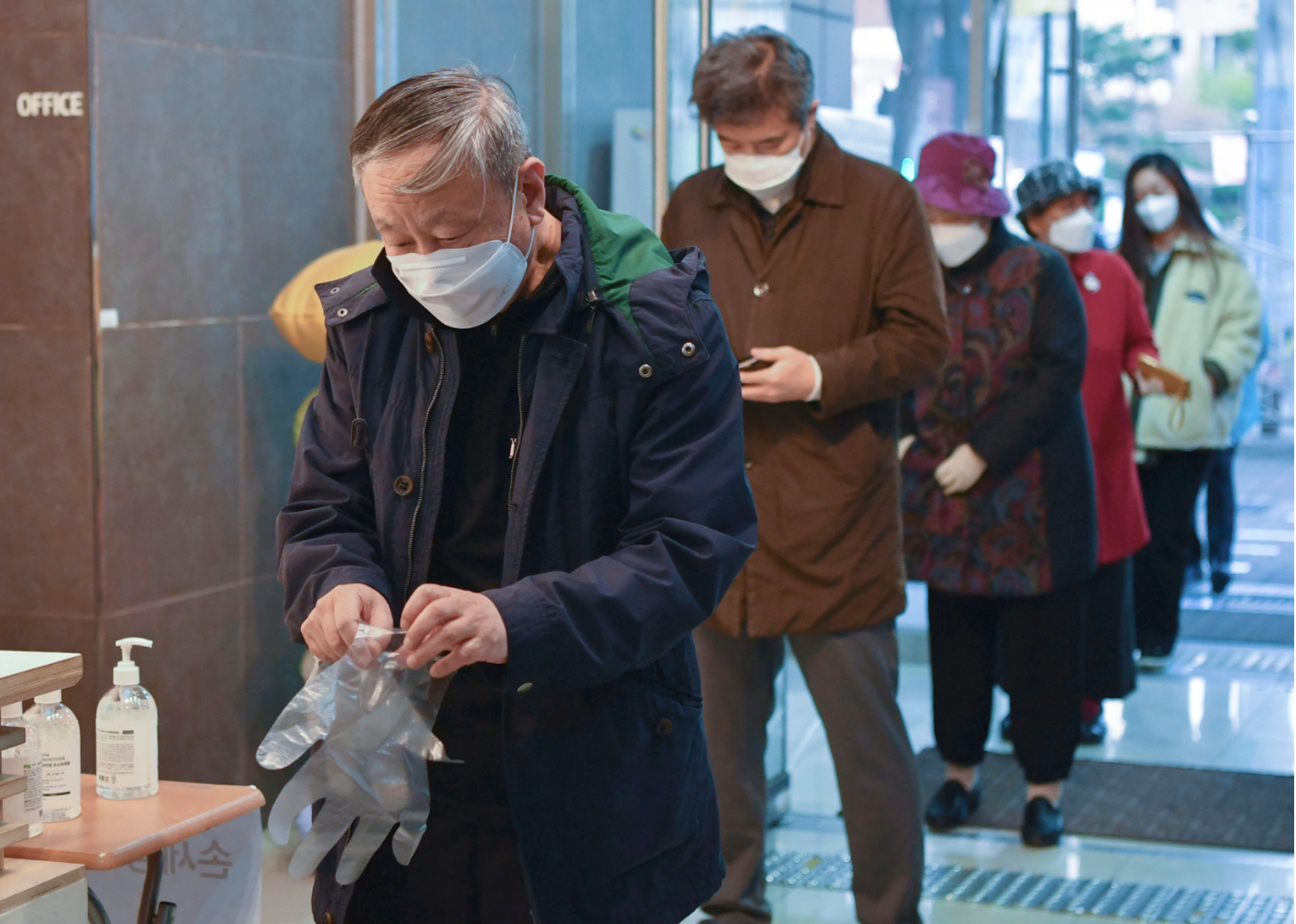
A polling station in Seoul during voting in South Korea's general election. (AP)
Oh gripped her walker, struggling to keep her balance as she made her way out of her building. “I’ve never missed any national election, even in 1952 during the Korean War,” she said. “I wasn’t going to miss it this time either.”
Towards the end of February, South Korea had suffered the highest number of COVID-19 cases outside China. Officials feared that the parliamentary election in April might be unsafe, and that, worried about their health, voters might not turn out in high enough numbers for the results to feel representative and be considered legitimate. They decided to move forward with the election, but with heightened precautions in place.
Ms. Oh’s polling station was a convenient, ad-hoc set-up inside her apartment complex, intended to boost participation. When she arrived, she was helped by a college student volunteer who guided her to a “sanitizing station.” There, a poll worker held a thermometer to her right ear. (It read a healthy 36.5 Celsius.) She was asked to remove her gloves, and hand-sanitizer was squeezed out into her palms. Then they gave her a fresh pair of latex gloves. She lowered her mask so that an agent could compare her face with the photo on her ID, then quickly lifted it back in place.
Ultimately, Oh was one of 29 million South Koreans who voted that day, representing 66.2 percent of the population. Against all expectations, the election did not suffer from low turnout. In fact, it marked the highest voter turnout in nearly three decades.
In the U.S. and around the world, upcoming elections have sparked a heated debate on election safety and legitimacy. Globally, there are over seventy national elections planned for the coming months and the COVID-19 pandemic will likely impact all of them.
According to the Institute for Democracy and Electoral Assistance (IDEA)—an international, intergovernmental organization that works to strengthen democracy globally—one of the risks of holding an election during a pandemic is, as the South Korean government had feared, that lower voter turnout would undermine the legitimacy of the results.
South Korea aside, recent elections around the world show that these concerns are not unfounded. In France, for example, uncertainty around local elections rose when, on March 12, President Emmanuel Macron made a highly-anticipated TV announcement forbidding public gatherings. The first round of municipal elections was to be held three days later, on Sunday the 15th. For that, and for the second round, planned for the following week, Macron made an exception. Voters were simply asked to follow safety measures: use hand-sanitizers, maintain distance, don't touch the booth curtain, and bring your own pen.
“The situation was frightening,” recalled Arash Derambarsh. “They were restricting everything but the elections.” Derambarsh, a French-Iranian in his mid-forties, lives in Courbevoie, a suburb of Paris with about 90,000 residents, and works for its mayor. On March 15, at 8 am, Derambarsh opened a polling station in Courbevoie, his face mask hiding his skepticism. He displayed hand-sanitizing gels and made sure voters were keeping their distance. But after about two hours, he started getting anxious. The flow of people wasn't what it should have been, and among those who showed up, tensions ran high.
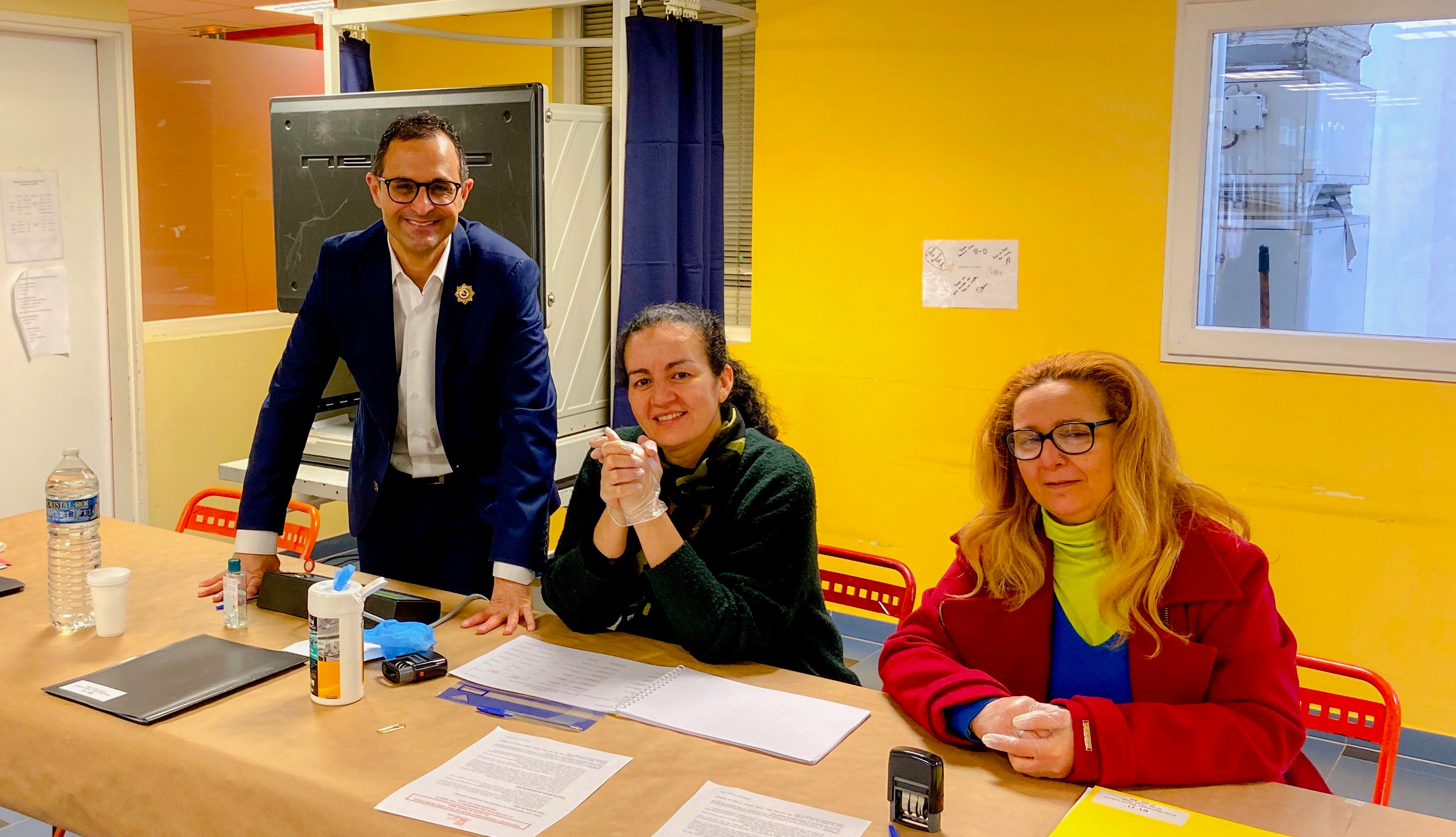
Arash Derambarsh with polling station volunteers during the first round of the French Municipal on March 15, 2020, in Courbevoie, France. (Arash Derambarsh)
“If you don't want to use gel, you can't vote and you have to leave,” he warned one voter who refused to clean his hands. The man turned around and shouted racial slurs at him. By 8 pm, when Courbevoie and more than 35,000 cities and towns across France closed their polls, they realized it had been the lowest turnout in the nation’s history.
In some cities, turnout was as low as 17 percent. Ultimately, turnout inversely correlated with the size of the municipality: the larger the city, the lower the participation. In medium-sized cities, only 37 percent of the voters came out, as opposed to more than 55 percent in the last election six years prior.
The next day, Macron discussed the elections with the Conseil d'Etat, the highest court in France. It ruled that the results of the first round were fair and that the principle of “sincérité of the elections,” written in the Constitution, had been respected. The principle of sincérité means that the election of a candidate “reflects the exact will of the majority of voters.” It implies two other principles, liberty and equality, which apply both to voters and to candidates.
For the principle of sincérité to be violated, according to the French, an election’s results must be altered because of a dysfunction in the organization of the votes, such as errors in counting, or fraud, or because some citizens were prevented from voting. Because French voters were technically permitted to brave the outdoors and vote, the results were upheld.
The Court also stipulated, however, that for the results in Courbevoie and the rest of France to remain valid, the second round of voting would have to occur within three months. After that, the election would no longer be considered fair. In response, the government announced it would hold elections on June 28. There was no campaigning, flyers, door-knocking, or rallies.
In the U.S., the decision to hold or postpone primaries is being decided state by state in the lead-up to the general election in November. On April 7, for instance, more than a week after the U.S. had surpassed China with the most confirmed cases of COVID-19 worldwide, Wisconsin held a Democratic Primary. In-person voting was lower than in previous years, but early voting led to a higher-than-usual turnout. More than 1.5 million people voted, with more than a million of those votes cast via absentee ballot. On June 2, in the midst of the pandemic, as well as global protests over police brutality, the eight states that held primary elections all received a higher-than-usual number of absentee ballots, in some cases 20-times higher than in the previous presidential primary.
No one knows how the pandemic will play out in the coming months, but in the U.S., the stakes of the upcoming election feel particularly high, which is perhaps why, in March, over 900 political scientists signed a petition to urge Congress not to postpone the election, but to enact legislation that ensures “a free, fair, and smooth” electoral process in November.
This kind of transparency and advance planning is crucial. In Poland, for example, the presidential elections on May 10 simply did not happen. The Polish government waited too long to make a decision, and the situation became chaotic, explains Filip Harzer, a reporter for Seznam Zprávy, which focuses on Polish politics. “Everything was being decided last-minute,” he said, “and by force of the parliamentary majority—often at night.”
The Polish situation illustrates a bias that continues to reappear across the world: the pandemic seems to favor incumbents. Incumbents, like Jaroslaw Kaczyński, leader of the right-wing Law and Justice party in Poland, are the ones deciding the terms of the elections, or lack thereof. They are the ones who already have power and name recognition. Unlike relatively unknown candidates, their campaigns do not suffer as much if they cannot go knocking on doors. In South Korea, the ruling party won 180 out of the 300 seats in the parliament—an unprecedented majority in the history of South Korean democracy. In France, out of the 30,000 mayors elected at the first round, 20,000 were incumbents.
Polish voters knew the stakes as the elections approached, but they were divided about holding them or not. According to IBRiS survey roughly 25 percent, mostly supporters of current President Andrzej Duda, favored holding the elections in May, while about 32 percent wanted to postpone them until 2021. Many, including former Prime Minister Donald Tusk and the main oppositional candidate Małgorzata Kidawová-Błońska, proposed a boycott if the election took place.
In Bolivia, the pandemic has exacerbated what was already an electoral crisis. Jeanine Áñez, the former right-wing second vice-president of the Senate, has been leading an interim government since Evo Morales was forced to resign by armed forces last fall. Morales fled the country following accusations that he meddled with the results of the October 2019 Presidential election. He had led the country for fourteen years. Áñez, who had gathered just four percent of the votes in that election, filled the vacuum of power and is now conveniently in charge of organizing the next election.

Jan. 22, 2020. The interim president of Bolivia, Jeanine Añez, gives speech in La Paz. (Wikimedia Commons)
Since taking office, Áñez has postponed the election and has resisted scheduling a new date. The country's electoral tribunal, led by an Áñez appointee, recommended postponing elections to sometime before September 6, with the option of even further delay. The current opposition party, Evo Morales’ Movimiento al Socialismo (MAS), which still holds the majority in the two chambers, wants elections to be held as soon as possible.
The Áñez-led government accused MAS of being “heartless,” for putting politics before people's health. In Bolivia, voting is compulsory and Election Day would inevitably draw large crowds to the polls, exposing them to the virus.
Raúl Peñaranda, a Bolivian journalist and political analyst, worries that Áñez finds this suspended state of affairs convenient. "There is always a risk [for an authoritarian government], but I hope it will not happen."
While voting by mail might seem like a solution, there is no provision for it in Bolivia’s electoral law. In Poland, it was not in the law either, but, recently, the lower house of the parliament passed legislation to have so-called “envelope elections.” However, it is uncertain whether the bill can pass the Senate, where the opposition parties hold a slight majority.
Just as in Poland, where, according to Harzer, postmen were saying they will not be able to handle a vote-by-mail election on short notice, this method is being haphazardly expanded in the U.S., causing politicized debate, and stretching local Boards of Election beyond their capabilities. But one country has spent the last ten years pioneering a solution to this problem.
Estonia, a country with a population of only about 1.3 million citizens, began experimenting with its i-voting system in 2005. In the 2019 parliamentary elections, 44 percent of the total votes were cast online.
There is no other country in the world that offers i-voting in all its elections. Estonia is a young republic that has been lauded for its smooth transition into a digital society. Occupied by the Soviet Union until 1991, it totally reinvented itself after independence. “There’s no past dependency to things,” said Robert Krimmer, Professor of e-Governance at Tallinn University of Technology. “With less legacy, Estonians truly managed to think outside the box.” But fine-tuning a safe and reliable i-voting system took four years to set it up.

(Steve Jurvetson / Flickr)
To vote online, one needs an ID-card, which costs 25 dollars and is mandatory for all residents. According to national statistics, almost everyone has one in Estonia. Online voters also need a computer, an ID-card reader, and the software to run it, though most of the costs are subsidized by the state. “The idea from the beginning was to make things more convenient for citizens, from doing their taxes to banking,” Krimmer explained. Each year, the process becomes more and more popular, with more Estonians voting early online.
For the next digital Tiger Leap, or Tiigrihüpe as it is called in Estonian, the government is planning to make i-voting available on mobile phones in 2021.
Another method to make voting safer is to expand the number of polling stations. India, which began reopening the country in June following the world’s largest and strictest lockdown, is holding assembly elections in the eastern state of Bihar in October and November. An expected 70 million voters will elect a new state government. In a health index released last year by NITI Aayog, Bihar was ranked the second worst state in the country on various health parameters. Now, the state reported COVID-19 cases from all of its 38 districts. In preparation for the upcoming elections, the Election Commission of India is planning to increase the number of polling stations to limit the list of registered voters at each location to 1,000 each. “For this, we would require approximately 30,000 new polling stations in Bihar,” Election Commissioner Ashok Lavasa said. “We would need eight to ten polling staff-members, including security personnel, to manage each polling station.”
Casting a vote is seen by Indian voters as a chance to exercise their power, and analysts doubt whether the pandemic will stop people from going to the polls, especially since India does not plan to be on lockdown in the fall. The government has put in measures to allow vote by mail for COVID-19 patients, people with physical disabilities, and citizens over 65. State infrastructure fails on many issues, but “one thing we deliver, and deliver well, is holding elections,” said Rahul Verma, co-author of the book Ideology and Identity: The Changing Party Systems of India. “No other democracy of such massive proportions can claim to hold peaceful elections so regularly.”

Sgt. Monica Miggins sanitizes voters’ hands before entering a polling place in Fitchburg, Wisconsin, April 7, 2020. (Wisconsin Department of Military Affairs)
“For many people, elections are a time when they exercise whatever little leverage they have in the system,” said Tariq Thachil, incoming director of the Center for the Advanced Study of India (CASI) at the University of Pennsylvania. “If anything, they are going to be more motivated to turn out.”
These kinds of measures are suggested by the democracy watchdog Brennan Center for Justice at New York University to protect the 2020 vote here in the U.S. The list in full includes: “(1) polling place modification and preparation; (2) expanded early voting; (3) a universal vote-by-mail option; (4) voter registration modification and preparation, including expanded online registration; and (5) voter education and manipulation prevention.”
In the U.S., President Trump has tried to convince the public that mail-in voting would lead to voter fraud, despite facts indicating otherwise, and he has admitted that expanding the vote in such a manner would hurt his chances as a Republican. The question is whether, like South Korea, the U.S. will begin preparing for mail-in votes in advance, or whether the November election will resemble the debacle in Georgia on June 9, in which lines for primary voting stretched dangerously long, voting machines malfunctioned, and some polling sites were poorly chosen—for instance, at a nursing home. South Korea could stand as an example in how to get it right. By expanding the number of days and the methods in which votes can be cast, coupled with extensive contact-tracing, the country’s new election measures allowed tens of millions of South Koreans to exercise their democratic rights without fear.
Geumsun Oh doesn’t regret her decision to go out to the polls. “It was my duty as a citizen,” she said.
On April 29, two weeks after voting took place, the Korean Centers for Disease Control and Protection released the figures: no local transmission had occurred in relation to the election.
This article was written and reported by Columbia Politics Collective members Sangmee An, Amel Brahmi, Kirsti Marjaana Karttunen, Brent Katz, Heena Kausar, Dominika Perlinova, Agostino Petroni and Javier Sauras.
 The Columbia Politics Collective is a global group of eighteen journalists from the Columbia Journalism School’s 2019-20 MA-Politics program. This is a series of dispatches on how the COVID-19 pandemic is functioning like a stress test, laying bare the strengths and weaknesses of political institutions around the world. Each article in the series will focus on a single underlying structure of government. Meet the journalists here.
The Columbia Politics Collective is a global group of eighteen journalists from the Columbia Journalism School’s 2019-20 MA-Politics program. This is a series of dispatches on how the COVID-19 pandemic is functioning like a stress test, laying bare the strengths and weaknesses of political institutions around the world. Each article in the series will focus on a single underlying structure of government. Meet the journalists here.
